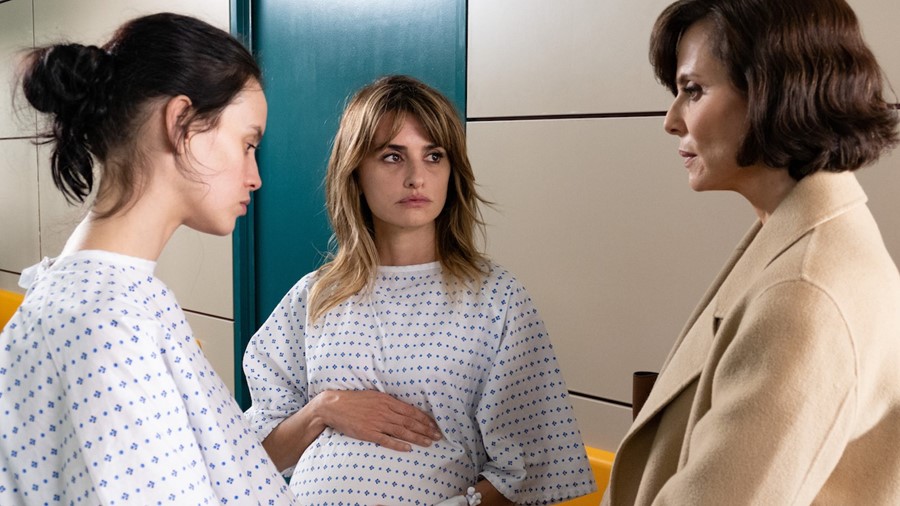As Pedro Almodovar’s new film Parallel Mothers is released, Alex Denney delves into the maternal figures and the ghosts of civil war in the Spanish director’s work
Parallel Mothers marks a return to a cherished theme for Pedro Almodóvar. For his 23rd film, the famously mother-loving Spanish auteur explores the bond struck up by two expectant mums who meet on the labour ward, teenager Ana (Milena Smit) and fashion photographer Janis (Penélope Cruz). When one of them learns a terrible secret, the scene is set for a showdown between two generations of single mums – or at least, it would be if we were in Hollywood here. Instead, this being Almodóvar, Janis and Ana’s connection grows ever-deeper as the director finds new kinks in a career-long obsession: the ties that bind mother to child, and women to other women.
Almodóvar has given us some of the great screen mums over the years, from his early days as a queer punk provocateur to his later, more subtly transgressive works. In his singular vision, mothers are both nurturing figures as well as a source of erotic fixation, victims of Franco-era fascist ideology and avenging angels in the national psychodrama that played out after the dictator’s demise. In Parallel Mothers, he folds in a plot about Janis’s attempts to disinter her great-grandfather, one of the many thousands of people that ‘disappeared’ during the Spanish civil war. It’s a timely fuck-you to the historical revisionism of the country’s resurgent far right, and a narrative sleight of hand that repositions women on the front line of Spain’s unfolding culture war.
Most importantly, Parallel Mothers does what all good Almodóvar films do, which is remind us that it’s good to be alive – and who have we to thank more than our mothers for that? Here’s a quick refresher on some of the best and most royally messed up mums in his work.
Gloria, What Have I Done to Deserve This? (1984)
Okay, so she murders her husband with a ham bone and sends her 12-year-old son to live with a paedophile dentist. But let’s not judge her too harshly, because Gloria is a woman who’s had enough. Part-bad-taste provocation, part-gnarly satire of family values in the post-Franco era, this early gem stars Carmen Maura as a put-upon housewife who embodies the line, “Women today just won’t stay at home any more!” The film was made in 1984, as Spain came to terms with the legacy of a fascist regime which saw women enshrined as mothers and homemakers and ‘liberated’ from the right to work. Which makes Gloria a hero of sorts, and a fine example of a central conundrum about Almodóvar, a strident voice for a sex-positive, trans-positive brand of feminism who would nonetheless have been cancelled a million times over if he’d been starting out today.
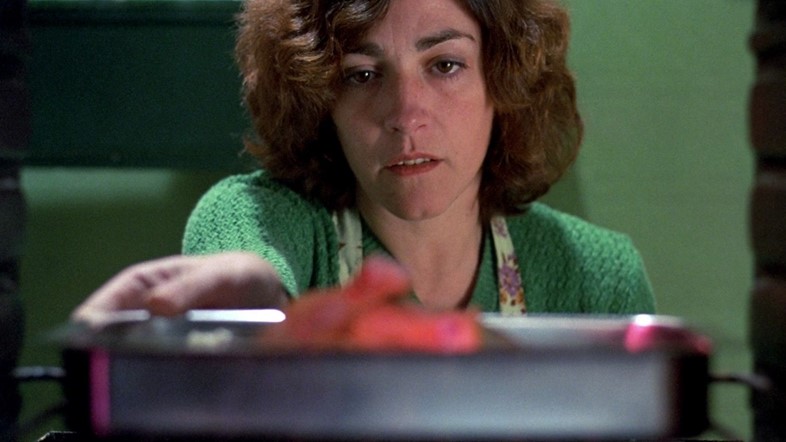
Manuela, All About My Mother (1999)
As Almodóvar’s style matured, he found new ways to incorporate his anti-authoritarian leanings into his storytelling, and All About My Mother is a prime example. When her teenage son Esteban dies in a car accident, Manuela (Cecilia Roth) travels to Barcelona in search of the father he never knew, a heroin-addicted transgender woman called Lola. After reconnecting with a mutual friend, she becomes friendly with a nun (Penélope Cruz) employed at a shelter for sex workers, eventually becoming a mother again by way of some typically outlandish plot twists. Wise and empathic, Manuela is one of the more idealised portraits of motherhood in the Almodóvar oeuvre (though she’s no sap – when Cruz’s character mods sagely that women are “more tolerant” in the film, Manuela shoots back, “We’re assholes … and a little bit lesbo”.) Her greatest sin, like many of Almodóvar’s mothers, is the sin of omission: when Esteban asks Manuela about his dad, she says “I’ll tell you about it one day,” a phrase she later comes to regret. Oddly, it’s a line that recurs throughout Almodóvar’s movies – a sign of buried trauma, of something too painful to be spoken.
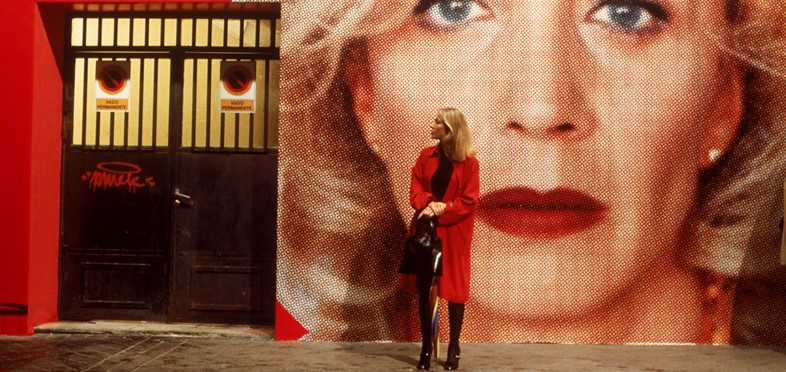
Raimunda, Volver (2006)
There are two mothers at the heart of Almodóvar’s Oscar-nominated 2006 drama, surely the cheeriest of all films dealing with familial abuse and murder. The first is Raimunda (Penélope Cruz), a fiercely committed mum who covers up for her daughter when she kills her stepdad during an attempted rape. The second is Irene (Carmen Maura), Raimunda’s late mother, who suddenly appears in the boot of her sister’s car one day and may or may not be a ghost. Irene seems to be on a mission to heal old wounds, but she remains a troubling figure, bringing up years-old trauma for Raimunda in a way that forces us to think about the ways that women were complicit in the crimes of the Franco era, too.

Jacinta, Pain & Glory (2019)
Perhaps the closest we’ve got to an on-screen account of Almodóvar’s own relationship with his mum is Pain & Glory, the autumnal tale of an ailing film director reflecting on his life’s work and relationships. The film opens with an idyllic scene from childhood, as Salvador (Antonio Banderas) recalls a day spent by the river washing clothes with his mum, Jacinta (Penélope Cruz), and some friends from the village. As the women hang their sheets out to dry over the tall reeds, they sing a beautiful rendition of A Tu Vera, a copla song by Lola Flores, and Jacinta takes on an aura of sun-dappled saintliness that the film does little to dispel until another scene, equally poignant, towards the end. In it, Salvador, who is openly gay, tells his now-elderly mum, “When you used to say, ‘Who does this kid take after?’ you didn’t exactly say it with pride … Have I failed you being the way that I am?” The pained silence that follows speaks volumes, as Jacinta is forced to reckon with her buried feelings of shame.
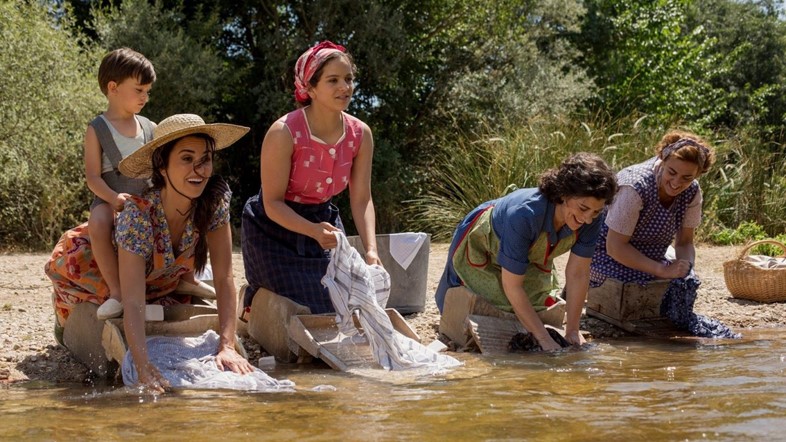
Teresa, Parallel Mothers (2021)
The other parallel mother in Almodóvar’s latest film is Ana’s mum, Teresa, who abandons her traumatised daughter to pursue her dreams of acting. Teresa’s cold conservatism clashes with the warmth of Raimunda, whose own career ambitions were fulfilled long before she got pregnant, but Almodóvar fleshes the character out beautifully with a scene between the two where Teresa offers a heartfelt mea culpa for her shitty parenting. She had married young, she explains, although “I had no calling to be a mother or a wife”, and had gone through a messy divorce from a husband who used their daughter as a pawn in the breakup. Though we never meet the husband, he is felt as an ominous shadow throughout the film, enforcing the culture of silence and wilful amnesia that has left the spirit of Francoism alive and well in Spain today. Teresa, however, is more complicated, a tragic figure in spite of her monstrous selfishness.
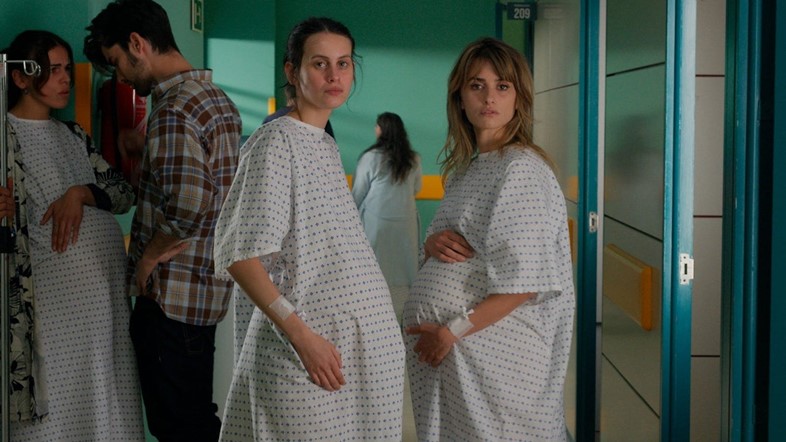
Parallel Mothers is out now.
